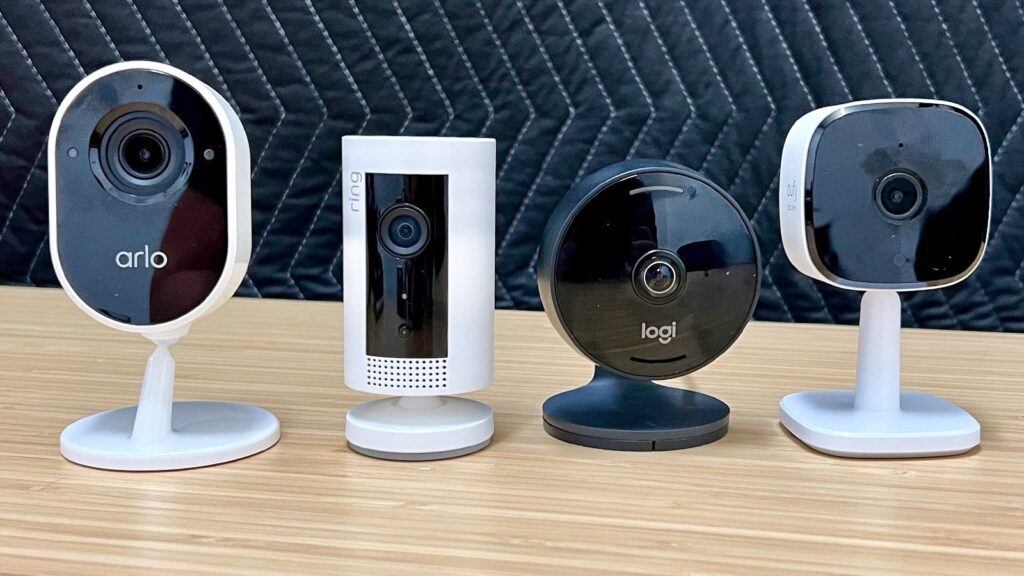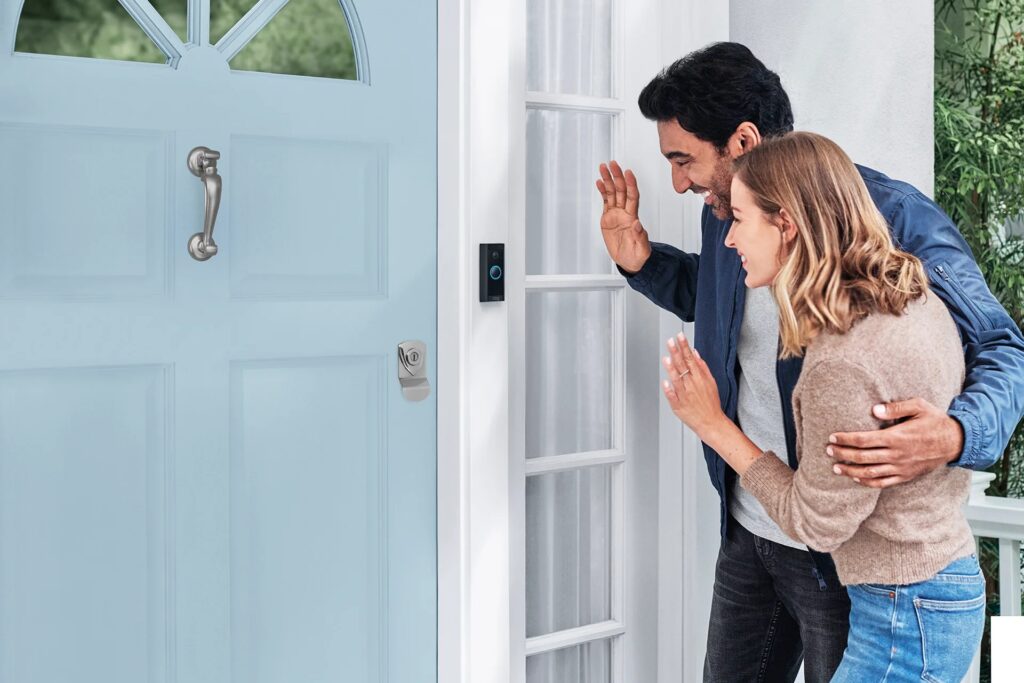In today’s digital age, home security is more important than ever. With the rise of smart technology, biometric access control systems have emerged as a cutting-edge solution for keeping your home safe and secure. By utilizing unique physical characteristics such as fingerprints, facial recognition, or iris scans, biometric access control provides an unparalleled level of protection against unauthorized entry. In this article, we will explore the benefits of biometric access control and how it can enhance the security of your home.
Table of Contents
What is Biometric Access Control?
Definition of Biometric Access Control
Biometric access control is a security system that uses unique physical or behavioral characteristics to verify a person’s identity. These characteristics can include fingerprints, facial recognition, iris scans, voice recognition, and hand geometry. By comparing these unique traits to a database of authorized users, biometric access control systems can determine if a person is allowed entry into a specific area.
Types of Biometric Access Control
There are several types of biometric access control systems available, each with its own strengths and weaknesses. Some common types include:
- Fingerprint scanners: These systems capture and analyze the unique patterns found in a person’s fingerprints.
- Facial recognition: This technology uses algorithms to map and analyze the unique features of a person’s face.
- Iris scans: By capturing the intricate patterns in a person’s iris, this technology can accurately verify identity.
- Voice recognition: This system analyzes the unique characteristics of a person’s voice to grant access.
- Hand geometry: By measuring the size and shape of a person’s hand, this technology can verify identity.
How Biometric Access Control Works
Biometric access control systems work by capturing and storing an individual’s unique biometric data. When a person attempts to gain access to a secured area, they are required to provide their biometric information, which is then compared to the stored data. If the biometric data matches, access is granted. This process is fast, accurate, and highly secure, making biometric access control systems an ideal solution for ultimate home security.
Benefits of Biometric Access Control in Home Security
Enhanced Security Measures
Biometric access control systems offer a higher level of security compared to traditional methods such as keys or PIN codes. With biometric technology, homeowners can ensure that only authorized individuals are able to enter their homes. This eliminates the risk of unauthorized access and intruders gaining entry through stolen or duplicated keys.
Convenience and Ease of Use
Biometric access control systems provide convenience and ease of use for homeowners. Instead of fumbling with keys or remembering complex PIN codes, individuals can simply use their unique biometric data, such as fingerprints or facial recognition, to gain access to their homes. This eliminates the hassle of carrying around keys and the potential for lockouts.
Elimination of Security Risks
Biometric access control systems eliminate security risks associated with traditional methods of home security. Since biometric data is unique to each individual, the risk of unauthorized access through stolen or lost keys is greatly reduced. Additionally, biometric technology is difficult to replicate or forge, providing an added layer of security for homeowners.
Implementing Biometric Access Control in Your Home
In today’s world, ensuring the security of your home is more important than ever. Biometric access control systems offer the ultimate solution for keeping your home safe from intruders. By implementing biometric access control in your home, you can rest assured that only authorized individuals can enter your premises.
Choosing the Right Biometric System
When selecting a biometric access control system for your home, it’s essential to consider factors such as accuracy, reliability, and ease of use. Look for a system that offers multiple forms of biometric identification, such as fingerprint, facial recognition, or iris scanning. Additionally, ensure that the system is compatible with your home’s layout and security needs.
Installation Process
The installation process for biometric access control systems in your home may vary depending on the specific system you choose. However, most systems can be easily integrated into your existing door locks and security infrastructure. It’s essential to follow the manufacturer’s instructions carefully to ensure proper installation and functionality.
Integration with Existing Security Systems
One of the key benefits of biometric access control systems is their ability to integrate seamlessly with your existing security systems. By connecting your biometric system to your CCTV cameras, alarms, and monitoring systems, you can create a comprehensive security solution for your home. This integration allows for real-time monitoring and alerts in case of any unauthorized access attempts.
Implementing biometric access control in your home is a crucial step towards enhancing your home security. By choosing the right system, following the installation process correctly, and integrating it with your existing security systems, you can enjoy peace of mind knowing that your home is protected against intruders.
Final Thoughts:
Biometric access control systems offer a cutting-edge solution for enhancing home security. By using unique biological traits such as fingerprints or facial recognition, these systems provide a level of security that traditional key-based systems simply cannot match. With the ability to accurately identify individuals and restrict access to unauthorized parties, biometric access control is truly the key to achieving ultimate home security. Investing in a biometric access control system can provide homeowners with peace of mind knowing that their property is protected by the latest technology in the field of security.
FAQs:
What is biometric access control?
Biometric access control utilizes unique physical characteristics such as fingerprints, iris patterns, or facial features to authenticate individuals and grant access to secured areas.
How does biometric access control enhance home security?
Biometric access control offers a highly secure and convenient method for granting access to your home. Unlike traditional keys or passcodes, biometric data is unique to each individual, reducing the risk of unauthorized entry.
Are biometric systems difficult to install and use?
Many modern biometric access control systems are designed for easy installation and user-friendly operation. Installation requirements may vary depending on the specific system chosen, but most can be integrated seamlessly into existing security setups.
What happens if the biometric system fails to recognize a user?
Biometric systems typically provide backup authentication methods such as PIN codes or keycard access to ensure entry in the event of recognition failures. Additionally, system administrators can adjust sensitivity settings to minimize false rejections.
Are biometric systems vulnerable to hacking or spoofing?
Advanced biometric systems incorporate sophisticated algorithms and encryption techniques to safeguard against hacking and spoofing attempts. Additionally, multi-factor authentication methods can further enhance security by requiring multiple forms of verification.
Can biometric access control systems be integrated with other home security devices?
Yes, many biometric access control systems offer compatibility with other smart home devices such as security cameras, alarms, and smart locks. Integration allows for comprehensive control and monitoring of home security from a single platform.
What are the privacy implications of using biometric data for home security?
Biometric data is highly personal and sensitive, so it’s essential to choose reputable manufacturers and ensure compliance with relevant privacy regulations. Opting for systems that store biometric data locally and employ strong encryption can help mitigate privacy risks.
Are biometric access control systems suitable for all homes?
Biometric access control systems can be adapted to suit a wide range of home sizes and layouts. However, factors such as budget, desired features, and technical requirements should be considered when selecting the most suitable system for your home.


